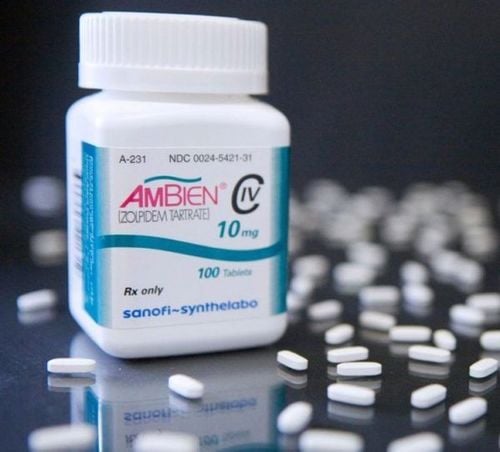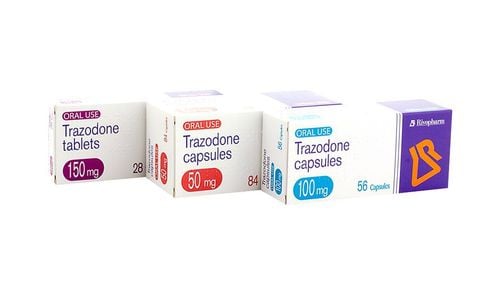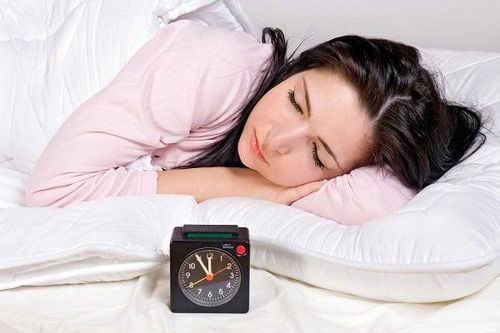This is an automatically translated article.
The article is professionally consulted by MSc resident Nguyen Van Phi - Psychological consultant, Psychological Clinic, Vinmec Times City International General Hospital.Currently, there are three common methods applied in the treatment of sleep disorders: psychological relaxation, sleep hygiene, and medication to treat sleep disorders.
1. Psychological relaxation
For healthy people, normally, health will not be affected if sometimes not sleeping enough 8 hours a night. Therefore, the patient should not be too worried. Patients with long-term insomnia are often afraid of the evening because they think they may not be able to sleep and the more they fear about their condition, the harder it is to sleep.
If there are unresolved problems during the day, put them on hold. Do not lie down and wait for sleep to come and think of ways to solve problems. When you go to bed, do not think or do anything. If you can't sleep, after 10-15 minutes, get up and go do something else.
2. Sleep hygiene
Here are ways to make it easier to fall asleep without medication for sleep disorders.
Wake up on time every day. Even if you have insomnia, you should only stay in bed for as long as the normal sleep time before insomnia. Do not use stimulants (coffee, tea, tobacco, alcohol...) in the afternoon. Avoid sleeping too much during the day. Exercise regularly in the morning (you can do heavy exercises). Avoid stimuli that make it difficult to sleep such as listening to music too loud, reading a good book, watching movies that require high attention, closely monitored... About 20 minutes before going to bed, you should take a warm bath. Avoid large meals or overeating that cause indigestion near bedtime. Do gentle, relaxing exercises before bed. Bedrooms need ventilation, little light, not too hot or too cold.

Phòng ngủ cần thoáng khí
3. Using medicine to treat
There are many drugs to treat sleep disorders such as Benzodiazepine, zolpidem, chloral hydrate... but you must follow the doctor's instructions. If anxiety or depression is present, a combination of drugs to treat sleep disorders is recommended. In the past, primary insomnia was often treated with benzodiazepines. Long-term use of benzodiazepines can cause amnesia, especially since these drugs have a long half-life. Amnesia will be aggravated when combined with alcohol consumption. In elderly patients, drugs for sleep disturbances may cause muscle relaxation and fall. In general, benzodiazepines can cause dependence, so people rarely use them today.
Tricyclic and polycyclic antidepressants have a strong sedative effect. These drugs are effective in treating primary insomnia well, can be used for a long time, with a minimum treatment duration of 18 months, and in many cases, they have to be used for many years. The drug has many side effects such as dry mouth, bitter mouth, fatigue... so the dose must be increased slowly (especially amitriptylin). Sedative drugs should be used with caution when driving and operating machinery. The drug causes appetite and weight gain, so it should not be used for overweight or obese people.
When using amitriptyline for sleep disorders, the dose must be increased slowly, 1 tablet every night for the first week; week 2 in the morning 1 tablet, 1 tablet in the evening, week 3 in the morning 1 tablet, 2 tablets in the evening; From week 4 onwards 2 tablets in the morning, 2 capsules in the evening. Amitriptylin appears to have CNS depression and sedation quite quickly (a few hours after taking it) but has a rather long half-life (9 - 36 hours), so depending on your sleeping schedule, choose the time to take it. suitable. Should drink early about 7-8 pm, about 9-10 pm can sleep and will wake up at 5-6 am body awake and tired, if drinking too late (when going to bed to drink), then in the morning often difficult to get up, when puberty is often tired, not alert. People who often go to work far in the morning by motorbike should not take the medicine too late.
Take mirtazapine 1/2 to 1 tablet every night (no need to gradually increase the dose).
Sedative with sedative effect olanzapine 1/2 tablet every night. If the patient is obese, olanzapine should not be used.

Điều trị nội khoa bằng thuốc phải tuân theo chỉ dẫn của bác sĩ
For primary polysomnia: a morning stimulant such as amphetamine is needed, but this drug is currently banned because it is considered a drug. In this case, doctors often advise patients to drink tea, coffee to limit the feeling of drowsiness or replace it with a sleep disorder medication such as a selective serotonin receptor inhibitor (SSRI) antidepressant such as: fluoxetin, sertraline.... However, the effectiveness of the drug is not high.
Prolonged sleep disorder can become a chronic disease that negatively affects the health of the patient. Therefore, when suffering from insomnia for a long time, patients should go to the doctor to receive treatment and care to improve their sleep condition in particular and restore health in general.

Các bác sĩ của phòng khám Tâm lý của Bệnh viện Vinmec Times City
Operating since April 2019, the Mental Health Clinic of Vinmec Times City International Hospital, receives regular examination, counseling and outpatient treatment of psychological and mental health problems.
The clinic has modern equipment and a team of doctors who are lecturers from Hanoi Medical University, capable of performing psychological tests and intensive psychotherapy for medical examination and treatment. psychiatry, including treatment of sleep disorders.
MSc. Doctor Nguyen Van Phi MSc. Doctor Pham Thanh Luan MSc. Doctor Nguyen Trong Hien Master, Doctor Nguyen Minh Quyet Master, Doctor Nguyen Thanh Long Master, Doctor Nguyen Thi Hoa.
Please dial HOTLINE for more information or register for an appointment HERE. Download MyVinmec app to make appointments faster and to manage your bookings easily.













